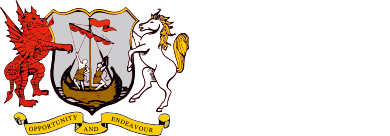Assessment
Key Stage 3 (Years 7-9)
Assessments will be ongoing throughout the year with a more formal assessment in most subjects in December and June. Subjects taught on rotation such as Design & Technology, Art, Music and Drama will be assessed at the end of each rotation. Attainment from the formal assessments will be reported with a quintile. More information about the quintiles can be found here.
Parents will receive twice yearly reports about their child’s achievements in January and July along with an Attitude to Learning report in April.
Your child will receive a report in November outlining the quintile we expect them to achieve in their assessments. The expectation is based on KS2 results.
Key Stage 4 (Years 10 and 11)
Year 10 students will take formal assessments in all their subjects in November and June to increase their overall confidence with sitting exams and help them understand the importance of on-going revision strategies through their journey of Key Stage 4.
In addition to this, any Year 10 student who is due to sit a GCSE exam in the summer term will also sit HCSEs (Haygrove Certificate of Secondary Education) which are designed to prepare them for the formal GCSE exams. The HCSE exams sit in a window of November and February.
Year 11 students will also sit the HCSE exams as mentioned above. These two points, with 10 weeks apart, lead onto the GCSEs which are 10 weeks away from the final sitting of HCSEs.
The HCSEs are ‘mock exams’ that enable students to understand how ‘exam ready’ they are and help them to prepare effectively for the summer exams. HCSE timetables will be made available on our website (exams & revision page) as well as it being emailed home. Individual personalised timetables will also be issued. This timetable will show where students are sitting their mock exams and what seat number they’ve been given. It is important students keep this timetable as the benefit is alleviating stress from not knowing where to sit.
Assessment booklets are created to support students with their revision. The booklet contains a page on each subject as well as tips and strategies on how to revise. It also states what resources are available both generally and subject specific. The booklet will be shared with students and parents prior to the start of the two assessment windows.
Through the course of the year, KS4 students will be given predicted grade reports. The grades will be the 9-1 scale for GCSEs and vocational qualifications (BTEC and OCR Cambridge Nationals) will be graded Distinction*, Distinction, Merit and Pass in Level 1 or 2.
|
Qualification level |
New GCSE grade structure |
New GCSE grade structure – Combined Science |
Previous GCSE grade structure |
Vocational grades |
|
|
Level 2 |
9
8
7 |
9-9 9-8 8-8 8-7 7-7 |
A*
A |
L2D*
L2D |
|
|
6
5
4 |
7-6 6-6 6-5 5-5 5-4 4-4 |
B
C |
L2M
L2P |
||
|
Level 1 |
3
2
1 |
4-3 3-3 3-2 2-2 2-1 1-1 |
D
E
F
G |
L1D
L1M
L1P |
L1P/ L1 Advanced credit |
|
|
U |
U |
U |
U |
|
Vocational grades
L2 – Level 2 qualification, L1 – Level 1 qualification
P – Pass, M – Merit, D – Distinction, D* - Distinction *
Some vocational courses can only award a Pass at Level 1, others can award 3 different level 1 grades.
The new Government threshold for success is Grade 5 (strong pass), although at present most FE colleges are accepting a minimum of Grade 4 in English and Maths for the majority of Level 3 courses (known as a good pass). However, this is likely to change and we expect the threshold for entry to college will become Grade 5 in the near future.
Criteria set by the Government expects student to achieve good pass grades in:
- GCSE Maths
- GCSE English
- Plus three further GCSE qualifications from the Sciences (including Computer Science), Geography, History or a Language
- Plus three further qualifications which can be either GCSE, BTEC or another approved qualification.
Attitude to Learning
Students will be awarded one of the following Attitude to Learning grades:
Outstanding
Committed
Compliant
Reluctant
Click here to find out how we grade student ATL.
We are using this system to make it clearer to students, parents and teachers about what is required to achieve each grade and also to understand how to improve. This will lead to more dialogue between students and teachers about their learning. We have also linked this to our Character Education programme so the students can see how the character traits we focus on in school allow them to succeed in all aspects of their learning.






